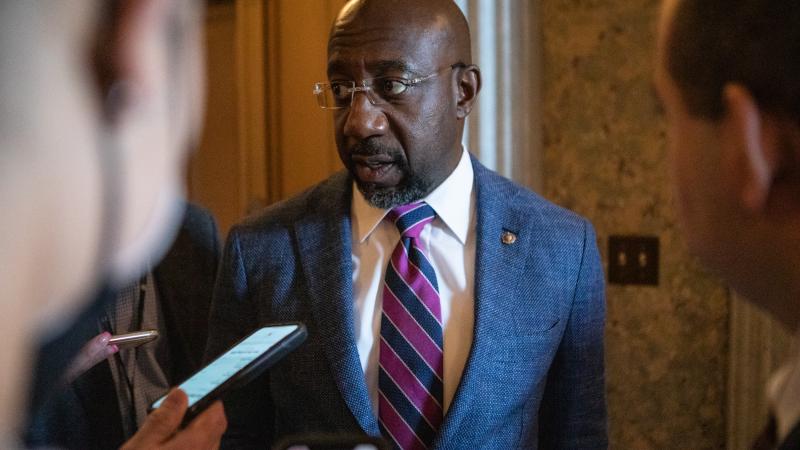CBO paints bleak picture with new budget forecast as Congress poised to pass massive spending bill
Have to pass it to find out what's in it? Conservatives in Congress are criticizing congressional leadership for waiting until the last minute to release the text of the full spending package for review before the planned vote.
The Congressional Budget Office made bleak new predictions about the nation's financial picture as Congress prepares to vote on a massive spending bill to fund the rest of the fiscal year.
According to the CBO's latest Long-Term Budget Outlook from 2024-2054 released on Wednesday, the nation's debt held by the public grow to 166% of Gross Domestic Product (GDP) by 2054.
In addition, the CBO predicted that the Social Security Old-Age and Survivors Insurance trust fund will be exhausted in 2033, the Medicare Hospital Insurance trust fund will be depleted by 2035, and the Highway Trust Fund will run out in 2028.
Conservatives in Congress are criticizing congressional leadership for waiting until the last minute to release the legislative text of the full spending package for review before the planned vote. The self-imposed deadline for Congress to pass another spending package is Friday.
As of Wednesday early evening, the full legislative language of the bill has still not been publicly released. Rep. Thomas Massie, R-Ky., said the current GOP-led House has returned to "swamp mode" from the days of former House speakers Paul Ryan, R-Wis., and John Boehner, R-Ohio, "where the omnibus is written behind closed doors" and scheduled for a floor vote.
“Members are told to take it or leave it, and although Republicans control the House, more Democrats vote for it than Republicans because it spends more money than when Pelosi was in charge," Massie wrote on his X account Tuesday.
Sen. Mike Lee, R-Utah, shared a similar view on the last minute timing of the final spending package's release.
"Lawmakers shouldn’t pass bills they haven’t had time to review, debate, and amend. Spending bills are no exception," Lee wrote on Wednesday on X. "Ignoring this truth has contributed to our $34 trillion national debt. Please like and share if you agree."
The forthcoming spending package includes more funding in certain areas such as border-related technical enhancements and slight reductions in others such as a 6% decrease in foreign aid spending, Just the News has learned. Overall spending levels remain largely similar to the previous fiscal year.
According to the CBO's budget outlook, "if current laws governing taxes and spending generally remained unchanged, the federal budget deficit would increase significantly in relation to gross domestic product over the next 30 years."
The agency attributed that increase to "high and rising interest costs and from large primary deficits (that is, deficits excluding net outlays for interest)."
"Growing total deficits would push federal debt held by the public far beyond any previously recorded level. Such large and growing debt would have significant economic and financial consequences," read the group's analysis. "Among its other effects, it would slow economic growth, drive up interest payments to foreign holders of U.S. debt, heighten the risk of a fiscal crisis, increase the likelihood of other adverse outcomes, and make the nation’s fiscal position more vulnerable to an increase in interest rates."
Sen. Ron Johnson, R-Wis., posted video from a Senate hearing with OMB Director Shalanda Young related to the value of the U.S. dollar as Congress and the White House continue to approve record deficit spending.
"Sad that's OMB Director did not know how much their massive deficit spending has degraded the value of the dollar. A dollar at the start of the Biden administration is now worth only $0.85. We are screwed," Johnson wrote on X. "The Biden administration is proud of a 10-year budget plan that never produces a deficit less than $1.5 trillion and adds $16.3 trillion to the our nation's debt."















